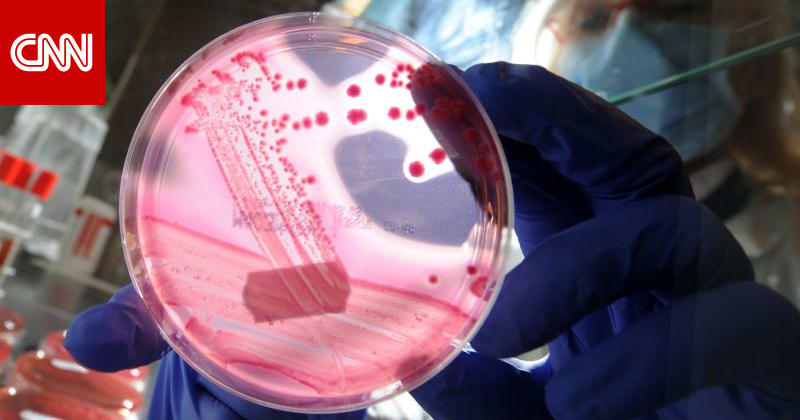Dubai, United Arab Emirates (CNN) – A new antibiotic, first developed more than 20 years after the last license to treat urinary tract infections, has shown great efficacy, which has encouraged the pharmaceutical company to developed it to stop testing it, and will soon provide its data to the US Food and Drug Administration for approval.
Pharmaceutical company GSK said Thursday that the new antibiotic, called Gepotidacin, is at least as effective as nitrofurantoin, currently used to treat urinary tract infections.
The company announced it would follow a recommendation from its independent data monitoring committee to stop the study early, as the drug has already proven effective.
The company said it will prepare its findings for publication in a medical journal and submit its data to the Food and Drug Administration for approval next year.
“Stopping your studies under such circumstances is rare in the industry,” said Tony Wood, GSK’s Chief Scientific Officer, in a call with reporters Thursday. “So that’s something I’m absolutely happy with, both from a public health point of view and from a corporate perspective.”
Geopotidacin works by blocking the enzymes that bacteria need to break down their DNA, their operating instructions, so they can reproduce in the body.
The drug was developed in collaboration with the US government, as one of 19 projects currently funded by the Biomedical Advanced Research and Development Authority, to combat antimicrobial resistance.
Government investments were necessary because the development of new drugs is very expensive and antibiotics are not very profitable.
There is an urgent need for new antibiotics, as over time many types of bacteria have become resistant to the agents used to treat them.
A 2021 report from the World Health Organization warns that there are not enough new antibiotics under development to overcome the looming threat of antibiotic resistance.
Antibiotic-resistant infections kill more than 1 million people worldwide every year.
Getting marketing approval for Gepotidacin was just the first hurdle, said Dr. Cindy Liu, medical director of the Center for Antibiotic Resistance at George Washington University.
He noted that he has seen drugs gain approval and their manufacturers abandon them when they are not making a profit.
Antibiotics are not very profitable for drug companies because patients only use them for a short time, as they are not like cholesterol or depression medications.
If antibiotics are used frequently enough, the bacteria that fight them will develop resistance to them, which will disrupt the effectiveness of the drug, so it has a limited shelf life.
UTIs can affect men and women of any age, but are more common in women and girls, who have a shorter urethra, making it easier for bacteria to infect the urinary tract.
UTI is the most common type of infection and studies show that it affects 1 in 8 women every year and 1 in 5 women over the age of 65.
Even after treatment, urinary tract infections recur between 30% and 44%, and most of them are caused by Escherichia coli bacteria, which have become more resistant to the drugs used to treat them.
Symptoms of a urinary tract infection include frequent urination, burning or pain when urinating, red-colored urine, low stomach cramps, and a constant need to urinate.
During clinical trials with 3,000 participating women, GSK demonstrated that Gepotidacin met its goals of resolving UTI symptoms and removing UTI-causing bacteria.
The study compared gepotidacin with nitrofurantoin, currently recommended as a first-line treatment.
Geopotidacin is being taken in tablet form and GSK is also testing it for the treatment of sexually transmitted gonorrhea.


